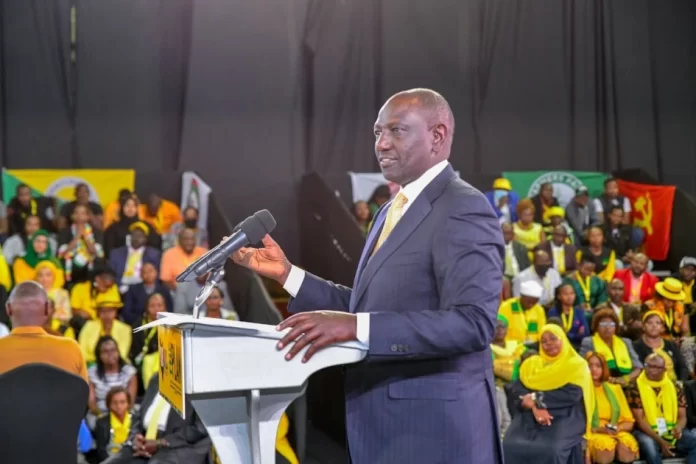Kenya Kwanza presidential candidate William Ruto has criticized the nation’s small arms manufacturing in Ruiru, Kiambu County, claiming it is not economically viable.
Speaking during the launch of his manifesto held at Kasarani stadium, the Kenya kwanza leader questioned the sense of the idea of the factory that he says cost Ksh4 billion.
In an attack seemingly veiled on the Head of State, Ruto stated that it would have been better for the government to construct garment factories since it’s cheaper.
Comparing the two, the DP stated that the Kitui county government invested Ksh168 million on a clothing industry that produced 600 jobs.
He claimed that this was comparable to Ksh280,000 per job, while the weapons factory was Ksh40 million per job.
“We have recently inaugurated a firearms factory that cost Ksh.4 billion and celebrated the fact that it will create 100 or so jobs. This works out to an investment of Ksh.40 million per job,” he said in his Kenya Kwanza coalition manifesto launch.
“In the same country, the County Government of Kitui established a garment factory with a capacity for 600 jobs at a cost of Ksh.168 million, Ksh.280,000 per job. The Ksh.4 billion gun factory investment is the equivalent of 24 Kitui garment factories and 14,000 jobs.”
Ruto went on to say that policy decisions made for investments, rather than the amount of money available, were what ultimately dictated economic decisions.
He asserted that this was how the trickle-down and bottom-up economic theories differed.
In April of last year, President Uhuru Kenyatta officially opened the Ksh. 4 billion facility, which has a single-shift annual production capacity of 12,000 assault rifles.
The president said that it would cut the cost of purchasing weapons for Kenya’s security forces and create a long-lasting national security industrial base that would employ young Kenyans.



















